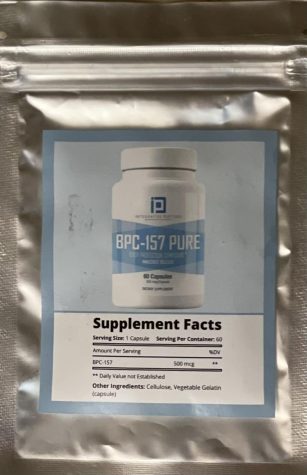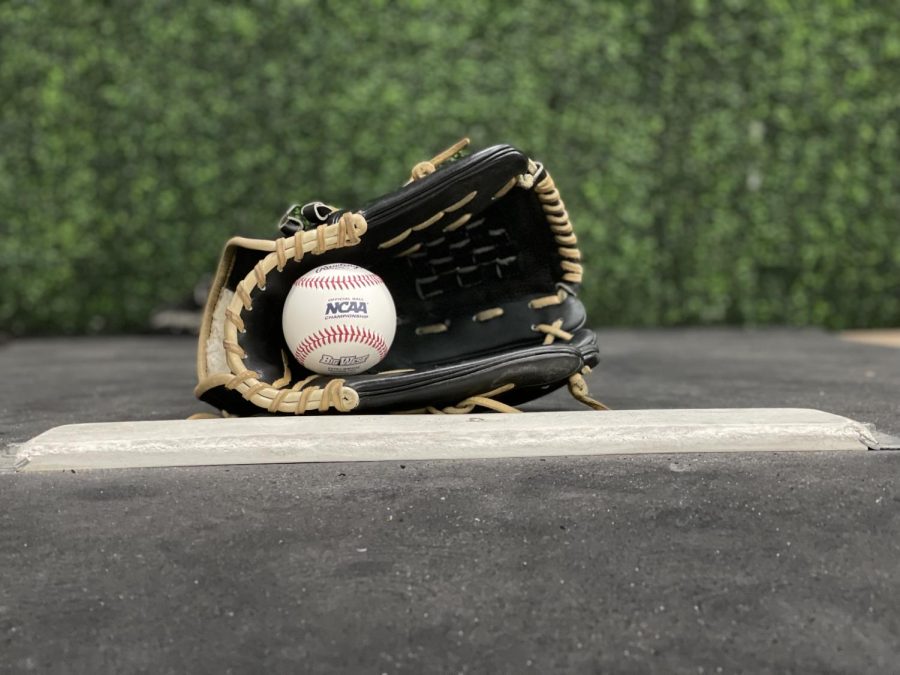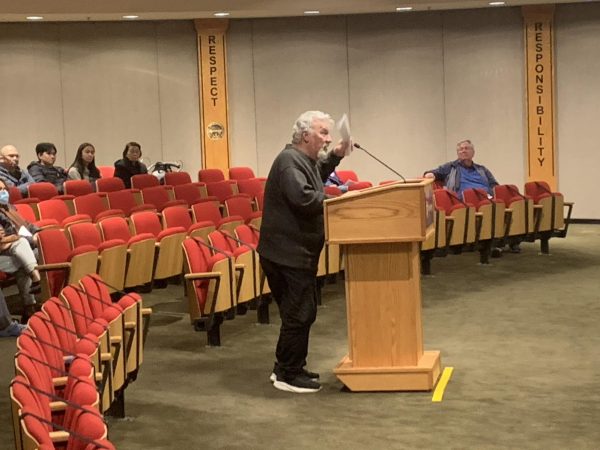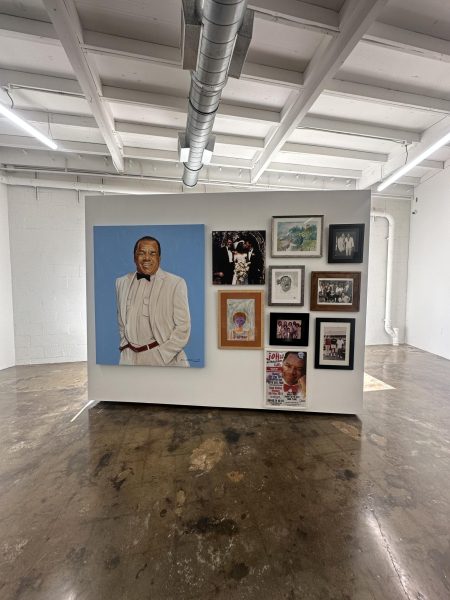Athletes struggle with steroid use
Baseball in a glove.
Brandon Ramirez was feeling very homesick in the Fall of 2016. He had no friends yet. He had just moved to California from Las Vegas.
He was on a new campus, Vanguard University in Costa Mesa, and all his teammates were new. When he looked around the weight room at them, he didn’t like what he saw.
I’m small compared to them, he recalled thinking.
Worst of all, he was redshirted, which means he wouldn’t be able to play or be on the official roster yet.
The idea was to give him time to develop as a player in that year.
So, as a freshman, he realized he needed to get better fast.
I need to throw harder, run faster, hit harder.
That is when he first considered using performance-enhancing drugs like many other college athletes.
About one-fourth of college athletes who used steroids reported that their coaches knew, and more than one-fifth said the drugs were supplied by their coach, athletic trainer, or team physician, according to a 2015 story about an NCAA report on the issue in Training & Conditioning, a trade journal.
In the game of American baseball, this illegal “competitive advantage” became a cornerstone in the late 80’s and early 2000s, which was known as the “the steroids area” of Major League Baseball (MLB).
The MLB did not start testing for steroid use in the league until 2003. After that year, when the MLB started testing in 2003, it suspended more than 90 players for violating the league’s policy on performance-enhancing drugs, according to the Baseball Almanac website.
The pervasiveness of the drugs and some college athletes’ willingness to do anything it takes to get to the next level are a dangerous combination.
Ramirez’s experiment
Rameriez said he tried performance-enhancing drugs because it seemed to be the quick-fix he was looking for.

“I took Selective Androgen Receptor Modulators (SARMs) going into the summer of my sophomore year. That way when I came back in the fall, it just looked like I worked hard in the summer,” he said.
It worked, temporarily anyway. He got stronger and looked bigger. Come fall, Ramirez felt like he was on top of the world.
But when he stopped taking them, the impact on his body was just as dramatic.
He lost a lot of muscle and strength over the course of the fall season.
The downfall
One baseball game that fall in particular changed his life.
Ramirez pitched for two innings and was ready to tackle the third.
On his first pitch of the inning, he felt a pop in his shoulder.
He tried to shake it off several times, until he just couldn’t any longer.
He lost all sensation in his fingers, a common sign of tearing your rotator cuff.
Calling his coach over with tears running down his face, Rameriez knew it was not good.
When he went to the doctor the next day, it was confirmed: He had torn his rotator cuff in his shoulder, needing a season-ending surgery.
The injury happened because of the stress that was on his body after losing muscle and strength in his arm. Ramirez never went back to playing, ending his baseball career before it had really even started.
Avoiding worse outcomes
“Athletes want a quick solution instead of putting in the work. Once you’re off the steroids, your body loses the ability to produce normal amounts of testosterone because it was getting so much of it synthetically which, therefore ‘deflates’ your growth,” said Peter Girgis, who owns Maximize Athlete Performance, a strength and performance facility in Los Angeles deals with Professional NFL, MLB and college athletes. “Once you stop, you lose most of your muscle.”
Beyond losing muscle that can lead to injuries, there are serious health risks that come with taking steroids such as an increased risk of prostate cancer, stunted growth, blood clots, liver damage, tumors and kidney failure, according to the National Institute on Drug Abuse.
Ramirez said he’s thankful he had to stop before anything more serious transpired.
Similarly, Sam Youngblood, a baseball player at Lynn University said it’s tempting at times to take shortcuts like steroids but that can also take the meaning out of any achievements.
“I’ve thought about steroids when nothing seems to be working,” he said, “but I think of it like this: If I took steroids I wouldn’t have earned it if I made it to the next level.”











